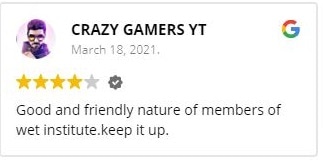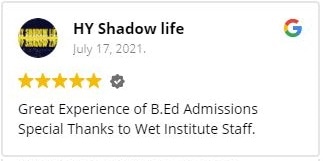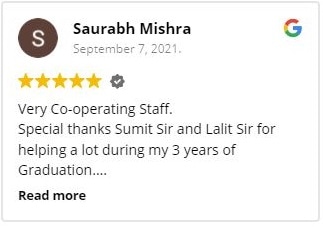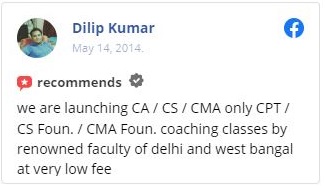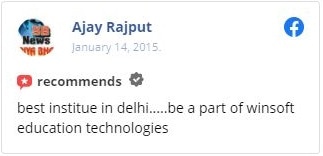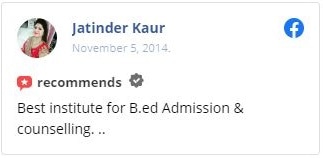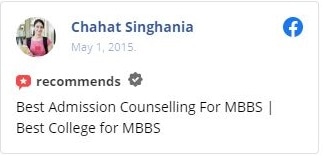NIOS 12th Class Admission
NIOS (National Institute of Open Schooling) 12th Class Admission Open in 2025: Admission Process, Eligiblility Criteria, Scope, fees, Duration, Syllabus, and Career Opportunities
NIOS (National Institute of Open Schooling) 12th Class: Eligibility Criteria
The eligibility criteria for enrolling in the NIOS 12th class are designed to be inclusive and accessible to a wide range of students. Here are the key requirements:
1. Age Limit
- Minimum Age: Students must be at least 15 years old as of the date of admission.
- There is no upper age limit, allowing learners of all ages to pursue their education.
2. Educational Qualifications
- Completion of 10th Class: Candidates must have successfully completed their 10th class education from a recognized board or institution. This includes those who have completed their secondary education through NIOS or any other educational board.
3. Admission Process
- Students should ensure that they meet the eligibility criteria before proceeding with the admission process, which includes online registration and submission of required documents.
Additional Information
- No Strict Academic Requirements: NIOS does not impose stringent academic criteria beyond the completion of the 10th class, making it an excellent option for school dropouts or those who may have faced challenges in traditional schooling.
- Subject Selection: Students can choose their subjects based on interests, including core subjects and vocational courses, enhancing their educational experience.
NIOS (National Institute of Open Schooling) 12th Class: Admission Process 2025
The admission process for the NIOS 12th class is designed to be simple and accessible for all students. Here’s a step-by-step guide for the 2025 admissions:
Step 1: Check Eligibility
- Age Requirement: Students must be at least 15 years old.
- Educational Qualification: Candidates must have completed their 10th class from a recognized board.
Step 2: Online Registration
- Visit the NIOS Website: Go to the official NIOS website at www.nios.ac.in.
- Find Admission Section: Navigate to the “Admission” section on the homepage.
Step 3: Document Submission
- Required Documents: Prepare the following documents:
- Proof of age (e.g., birth certificate or Aadhaar card).
- Marksheet of the 10th class.
- Recent passport-sized photographs.
Step 4: Fee Payment
- Payment of Fees: Pay the registration and examination fees through the online payment gateway provided on the NIOS website. Keep a copy of the transaction receipt for your records.
Step 5: Confirmation of Admission
- Receive Confirmation: After successful registration and payment, you will receive a confirmation regarding your admission.
- Study Material: NIOS will provide study materials and information about the curriculum once the admission process is complete.
Step 6: Subject Selection
- Select Subjects: Choose your subjects during the registration process based on your interests and career goals.
Important Dates for 2025 Admissions
- Admission Period: Keep an eye on the NIOS website for specific dates related to admission openings for the 2025 academic year.
- Examination Schedule: NIOS conducts examinations twice a year, typically in April-May and October-November.
NIOS (National Institute of Open Schooling) 12th Class: Fees and Duration
NIOS 12th Class Fees Structure
The fee structure for the NIOS 12th class is designed to be affordable, ensuring that education remains accessible to all students. Here’s a breakdown of the fees:
Registration Fee:
- Approximately ₹1,200.
- Approximately ₹1,200.
Examination Fee:
- ₹150 per subject for theory exams.
- Additional fees may apply for practical subjects, depending on the requirements.
Additional Subjects:
- If students wish to take more than the standard number of subjects, each additional subject typically costs around ₹150.
- If students wish to take more than the standard number of subjects, each additional subject typically costs around ₹150.
Study Material:
- The study materials provided by NIOS are included in the registration fee.
- The study materials provided by NIOS are included in the registration fee.
Scholarships:
- NIOS offers scholarships and financial assistance for underprivileged students to help reduce educational costs.
- NIOS offers scholarships and financial assistance for underprivileged students to help reduce educational costs.
NIOS 12th Class Duration
The duration for completing the NIOS 12th class is flexible, allowing students to manage their studies according to their individual circumstances. Here are the key points regarding the duration:
Minimum Duration:
- Students can complete the 12th class in a minimum of 2 years.
- Students can complete the 12th class in a minimum of 2 years.
Maximum Duration:
- The maximum time allowed to complete the course is 5 years, providing ample time for students to balance their education with other commitments.
- The maximum time allowed to complete the course is 5 years, providing ample time for students to balance their education with other commitments.
Examination Schedule:
- NIOS conducts examinations twice a year: in April-May and October-November. Students can appear for the exams based on their preparedness.
NIOS (National Institute of Open Schooling) 12th Class: Syllabus
The NIOS 12th class syllabus is structured to provide a comprehensive education that prepares students for higher studies and various career opportunities.
Core Subjects
Languages
- English
- Hind
Mathematics
Science
- Physics
- Chemistry
- Biology
Social Science
- History
- Geography
- Political Science
- Economics
NIOS (National Institute of Open Schooling) 12th Class: Scope and Career Opportunities
Completing the NIOS 12th class opens up a wide range of educational and career opportunities. The flexible and inclusive nature of NIOS education allows students to tailor their learning experience, preparing them for various paths. Here’s an overview of the scope and potential career opportunities after finishing the 12th class through NIOS.
Scope of NIOS 12th Class Education
Higher Education
- Undergraduate Courses: Graduates can pursue undergraduate programs in arts, commerce, science, or vocational fields in colleges and universities.
- Professional Courses: Students can opt for professional courses such as engineering, medical, management, and hospitality, depending on their interests.
Vocational Training
- NIOS offers various vocational courses that provide practical skills, enabling students to enter the workforce directly or pursue further specialization.
- NIOS offers various vocational courses that provide practical skills, enabling students to enter the workforce directly or pursue further specialization.
Lifelong Learning
- NIOS encourages continuous education, allowing individuals to pursue studies at any stage of life, whether for personal growth or career advancement.
- NIOS encourages continuous education, allowing individuals to pursue studies at any stage of life, whether for personal growth or career advancement.
Career Opportunities After NIOS 12th Class
Government Jobs
- The NIOS 12th class certificate is recognized for various government job applications, enabling students to apply for positions that require a minimum of 12th-grade education.
- The NIOS 12th class certificate is recognized for various government job applications, enabling students to apply for positions that require a minimum of 12th-grade education.
Private Sector Employment
- Many companies in the private sector accept NIOS certification for entry-level positions in fields such as sales, marketing, customer service, and administration.
- Many companies in the private sector accept NIOS certification for entry-level positions in fields such as sales, marketing, customer service, and administration.
Vocational Careers
- Information Technology
- Healthcare
- Hospitality and Tourism
- Retail Management
- Beauty and Wellness
Entrepreneurship
- With practical skills acquired through vocational courses, students can start their own businesses in various sectors, leveraging their education and training.
- With practical skills acquired through vocational courses, students can start their own businesses in various sectors, leveraging their education and training.
Skill Development Programs
- After completing the 12th class, students can enroll in skill development programs that enhance their qualifications in specialized areas.
- After completing the 12th class, students can enroll in skill development programs that enhance their qualifications in specialized areas.
Further Studies in Specific Fields
- Students interested in specific fields can pursue courses in arts, commerce, or science at the undergraduate level, setting the stage for advanced studies.

